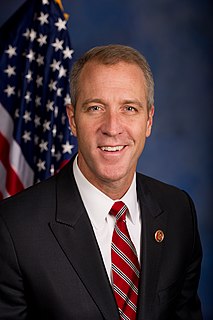A Quote by Erik Prince
Since United States military operations in Iraq began in 2003, I have visited Iraq at least 15 times. But unlike politicians who visit, the question for me has never been why the U.S. got into Iraq. Instead, as the CEO of Blackwater, the urgent question was how the company I head could perform the duties asked of us by the U.S. State Department.
Related Quotes
I made a movie to explain to the American public what had been achieved in regards to disarmament of Iraq and why inspectors aren't in Iraq today and detailing the very complex, murky history of interaction between Iraq, the United Nations and the United States. It is most definitely not a pro-Iraq movie. It is a pro-truth movie.
It was not the United States who invaded Kuwait; it was Iraq. It was not the United States that went to war with Iran; it was Iraq. It was not the United States that fired chemical weapons at Iran; it was Iraq. And it was not the United States that murdered innocent Iraqi citizens with chemical weapons; it was Iraq.
In my head, thought, I would love to do an interview where it's just sort of de-constructed - the talking points of Iraq - sort of the idea of, is this really the conversation we're having about this war? That if we don't defeat Al Qaeda in Iraq, they'll follow us home? That to support the troops means not to question that the surge could work. That, what we're really seeing in Iraq is not a terrible war, but in fact, just the media's portrayal of it.
The latest developments in Iraq are deeply troubling, but as the United States considers military and diplomatic responses to the actions of the Islamic State in Iraq and Syria (ISIS) action, we should be clear that U.S. troops on the ground cannot go a million miles near a sectarian civil war-it's simply not an option.
In Iraq, State Department civilians and U.S. soldiers have been operating in the same location in an active war zone. While the troops have been facing insurgents, the State Department civilians have been working to rebuild institutions and infrastructure. Blackwater's role in this war evolved from this unprecedented dynamic.

































